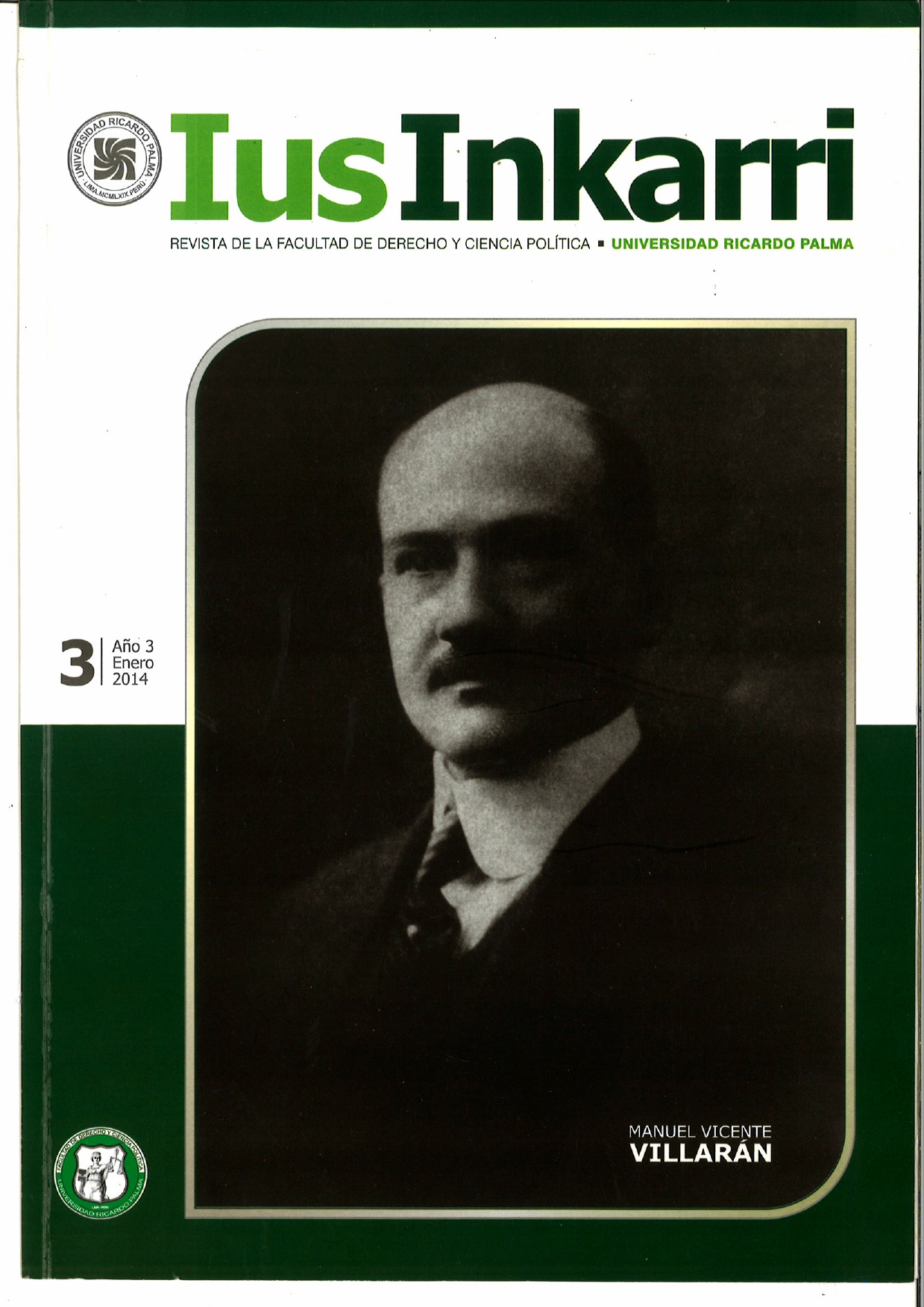Globalización. El proceso de integración y el cambio en la abogacía
DOI:
https://doi.org/10.31381/iusinkarri.vn3.4165Palabras clave:
globalización, abogado, sistema, integración, derecho, tecnología, corte internacional, jurisdicción, competencia, soberaníaResumen
La profesión de la abogacía está en proceso de adaptarse a un mundo globalizado que se internacionaliza progresivamente. Con ello la globalización de la abogacía va de la par con la internacionalización de la economía y la política. La respuesta es la internacionalización del Derecho. Hoy podemos advertir cómo se internacionalizan los asuntos legales, los clientes, los conflictos, los tribunales, los conocimientos, la vida institucional y por ende la actividad profesional.
Todo esto nos conduce a que el abogado deba conocer los procesos de integración que se dan principalmente por motivos económicos tales como la Unión Europea o la Comunidad Andina de Naciones, pero estos procesos también han llevado a que la normativa interna se modifique en base a las decisiones de los Tribunales Internacionales, en ese contexto el abogado debe manejar el Derecho Internacional y como es que los ordenamientos jurídicos nacionales acoplan estas decisiones tomadas en el ámbito supranacional. Para lograr este objetivo el profesional en la abogacía debe manejar no solo conocimientos teóricos, además debe conocer el vasto campo práctico para una mejor propuesta en la solución de conflictos. Es trascedente saber cómo gestionar la nueva realidad y es en este punto en donde el rol que desempeñan los abogados se vuelve crucial debido a que encarnan y compensan la ausencia de una estructura institucional, es decir que el abogado se ha ido convirtiendo en un representante de oficio de la sociedad. El desarrollo reciente de la mediación y el arbitraje internacional son un claro ejemplo de la nueva tendencia. En conclusión la internacionalización de la abogacía es la adaptación de nuestra profesión al proceso de globalización.
Descargas
Citas
ÁLVAREZ, Gonzalo 2007 "La formación jurídica en procesos de integración regional: El caso de la Escuela Superior del Mercosur". Revista sobre enseñanza de Derecho. Año 5. N° 9.
BARCO, Iván 2009 Teoría General de lo Tributario. Grijley. Lima.
DÍAZ BASTIEN, Héctor 2009 La abogacía y los retos del Siglo XXI. Artículo de opinión. Para mayor in-
formación visite: https://www.legaltoday.com/opinion/articulos-de-opinion/la-abogacia-y-los-retos-del-siglo-xxi.
ESPASA 2005 Diccionario de la Lengua Española. Q.W. Lima, Perú.
GARCÍA POMA, Víctor 1988 Teoría del Derecho. CONCYTEC. Lima.
GONZALES OJEDA, Magdiel 2012 Introducción a los Derechos Fundamentales y su protección constitucional. Ius Inkarri.
HARNECKER, Martha Contra la globalización neoliberal, por una globalización humanista y solidaria. Revista de herramienta, debate y critica marxista. Número 18.
JAGUANDE D'ANJOY, Alfonso 2012 Tres Dimensiones de un mundo en crisis. Universidad Ricardo Palma, Editorial Universitaria. Lima.
KARL W. DEUTSCH Teoría de la Integración: Análisis y aplicación. Para mayor información visitar: https://www.ilustrados.com/tema/5988/Teoria-Integracion-Karl-Deutsch-Analisis-Aplicacion.html
MULLERAT, Ramón El futuro de la abogacía y la formación del abogado. Anuario de la Facultad de Derecho de la Universidad Autónoma de Madrid N° 6.
TORRES LÓPEZ, Edgardo 2002 Informática y Justicia en Perú. Revista Oficial del Poder Judicial. Lima. Año 3. N° 5. 2002
OROSCO FLORES, Jorge 1999 Desafíos del abogado para el próximo siglo. Vínculo Jurídico N° 40.
PECES-BARBA MARTÍNEZ, Gregorio. 2004 Lecciones de Derechos Fundamentales. Dykinson. Madrid.
PINTO-BAZURCO RITTLER, Ernesto 1997 Diccionario de Relaciones Internacionales. Universidad de Lima.
QUINTANA ÁVILA, Virginia 2002 Estudio universitario y elementos de la investigación científica. DESA. Lima.
RÍOS BURGA, Jaime y otros 2010 Sociedad, Estado y Cultura en el Perú contemporáneo. Universidad Ricardo Palma. Lima.
RODRÍGUEZ CHÁVEZ, Iván 2006 Introducción al Derecho. Universidad Ricardo Palma, Editorial Universitaria. Lima.
SILVA SANTISTEBAN, Luis 1991 Fundamentos de Ciencia Política. 2da edición. Instituto peruano de relaciones internacionales. Lima.
VILLAGRÁN, Francisco 1969 Teoría general del Derecho a la integración económica. EDUCA, Costa Rica.
Descargas
Publicado
Cómo citar
Número
Sección
Licencia
Derechos de autor 2021 Rudy Cáceres Valdez

Esta obra está bajo una licencia internacional Creative Commons Atribución 4.0.














